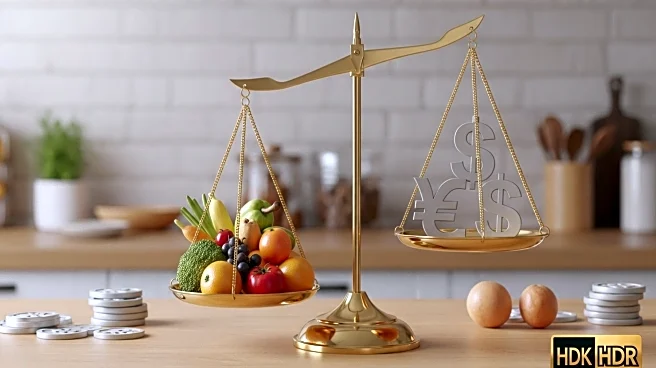What's Happening?
The Food and Drink Federation (FDF) has updated its forecast for food and non-alcoholic drink inflation, predicting it could reach 5.7% by December. This increase is attributed to domestic policies affecting production costs, despite stabilization in energy and raw material prices. The inflation rate for food and drink has been consistently higher than overall UK inflation, with significant price hikes in items like milk, cheese, and sugar. The FDF highlights that government regulations, such as changes to employer National Insurance Contributions and new packaging taxes, are key drivers of this inflation. The persistent high inflation rates have led to increased costs for food manufacturers, which are now being passed on to consumers.
Why It's Important?
The rising inflation in the food and drink sector poses significant challenges for UK households, who are already spending a substantial portion of their budget on these essentials. The inflation rate in the UK is notably higher compared to other European countries, indicating a unique economic pressure. This situation could lead to increased financial strain on consumers and potentially impact consumer spending patterns. The FDF is urging the government to reconsider regulatory costs and partner with the industry to boost investment and productivity, which could help mitigate inflationary pressures and support the sector's growth.
What's Next?
As the UK government prepares for the upcoming Autumn Budget, there is a call from the FDF to avoid further regulatory cost increases that could exacerbate inflation. The industry seeks government support to unlock growth opportunities through investment incentives and improved trade agreements. These measures could help stabilize prices and ensure a resilient future for the food and drink manufacturing sector.









